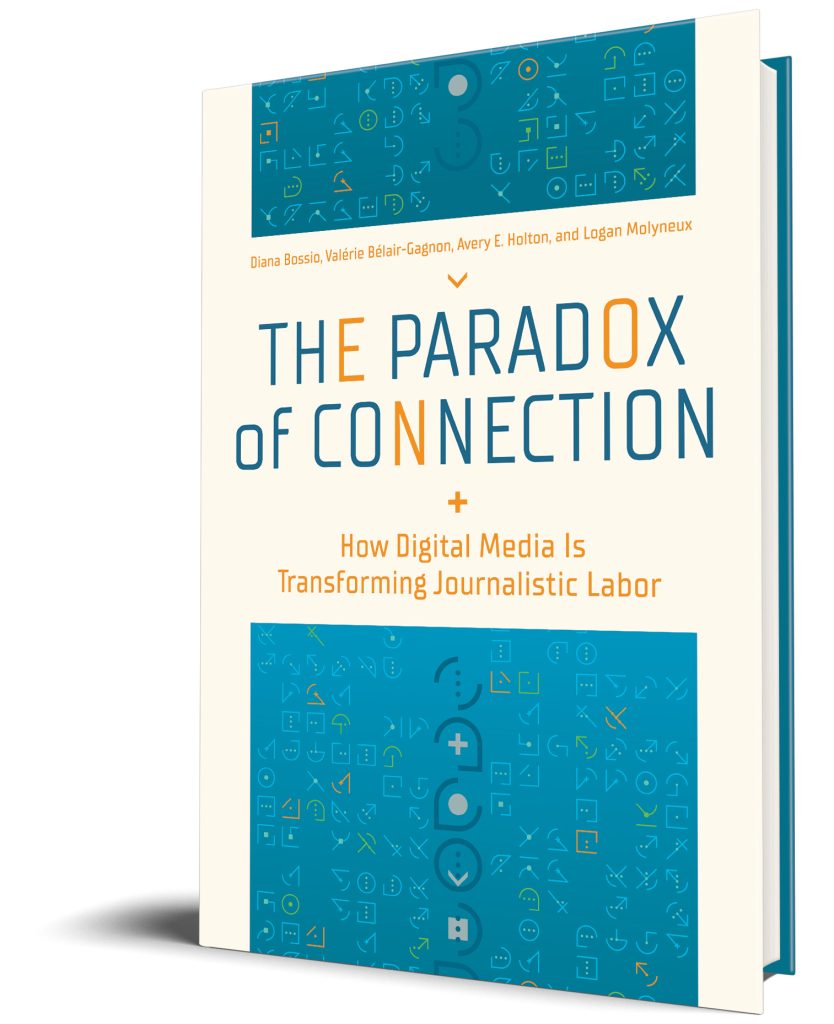The authors of The Paradox of Connection: How Digital Media Is Transforming Journalistic Labor, answers questions on their new book.
Q: Why did you decide to write this book?
As researchers, we noticed a growing challenge in professional journalism: the increasing harms that the profession has on journalists. Journalists—often those either considering leaving the profession or announcing their exit—were describing declines in their mental health and happiness, ambient experiences of online abuse and harassment, unpaid labor and disruption of their personal time. At the International Communication Association conference in Washington, DC in 2018, we decided to bring together our areas of expertise to think more about how journalists, news organizations, and even audiences might work to acknowledge and engage these concerns.
Q: What is the most interesting discovery you made while researching and writing your book?
The most interesting finding was that despite being tired, frustrated, and on the edge of burnout, journalists were searching for ways to use disconnection strategies as a means to cope. This was a universal experience, regardless of seniority, location, or media format. We also found that while having those experiences, journalists didn’t seem encouraged to share them because of workplaces structures, stigmas, or professional cultures. We also realized that these experiences were beyond journalism and affected many creative industries and academia.
Q: What myths do you hope your book will dispel or what do you hope your book will help readers unlearn?
We hope to help dispel the myth that digital wellbeing and wellness are individual responsibilities or the consequence of individual actions. We want to center the happiness and productivity of journalists as needing institutional, organizational, and policy-level changes that amplify care and collaboration as frameworks for professional approaches to digital work.
Q: Which part of the publishing process did you find the most interesting?
The collaboration with the different editors was interesting and gave a sense of how a potential reader might perceive certain portions of the book. Their queries gave us a good sense of how we might refine our arguments while ensuring their global impact.
Q: What is your advice to scholars/authors who want to take on a similar project?
To workshop ideas with peers in ways that ensure your idea as well as your framework is strong, readable, and relatable.
Q: What do you like to read/watch/or listen to for fun?
Diana listens to podcasts and going to the cinema for fun. Valérie loves news, business, and popular culture reads, and loves to play the New York Times games. Avery enjoys reading satire and sci-fi (think Vonnegut), engaging the news across multiple platforms, and a number of mini-series and documentaries on Netflix, Apple TV, and various other channels. Logan listens to jazz when he needs to get work done and plays strategy video games for diversion.
Diana Bossio is an associate professor in media and communication at Swinburne University and the author of Journalism and Social Media: Practitioners, Organisations, and Institution and coeditor of Social Media and the Politics of Reportage: The Arab Spring.
Valérie Bélair-Gagnon is an associate professor and Cowles fellow in media management at the University of Minnesota, Twin Cities, and the author of Social Media at BBC News and coauthor of Journalism Research that Matters and coauthor of Happiness in Journalism.
Avery E. Holton is an associate professor and department chair in the Department of Communication at the University of Utah and coauthor of Happiness in Journalism. Logan Molyneux is an associate professor of journalism at Temple University.

